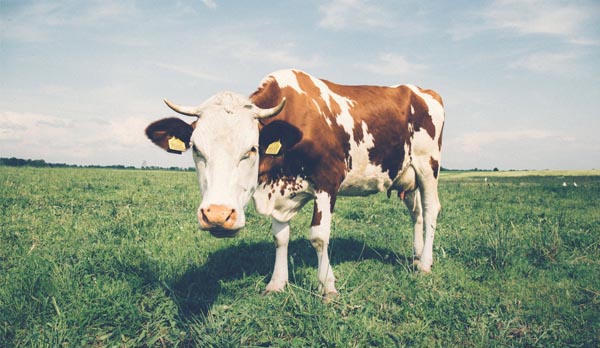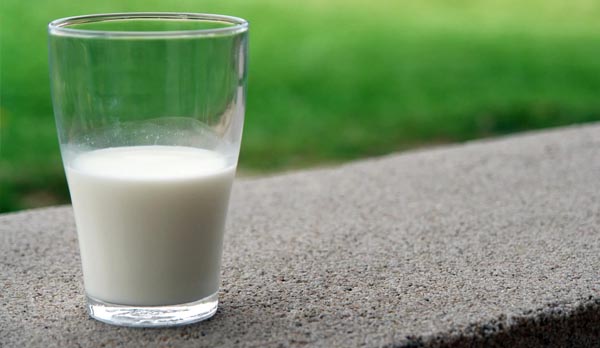Does you baby have rashes or is suffering from diarrhea? It might be cow milk allergy. It’s also known as cow milk protein allergy or CMPA). Let’s understand this condition and how it affects your precious little one.
What is Cow Milk Allergy?
Cow milk allergy in babies or cow milk protein allergy (CMPA) affects one in every 50 infants. From diarrhea to sickness and stomach cramps, CMPA has many similarities with lactose intolerance, which affects adults
and infants alike. These terms are often interchangeably used but are entirely different from one another.

There is only a fraction of children who suffer from this condition. The children with CMPA are often allergic to milk from other mammals as well. Allergic reactions caused by this condition range from mild to severe, which is known as anaphylaxis.
Determining CMPA
If you think your child has cow’s milk allergy then you should consult a pediatrician. He will have to run some tests before he makes a diagnosis.
The doctor would then suggest ways to manage cow’s milk allergy. Foremost would be avoiding food items containing milk. Make sure to strictly follow the diet suggested by your doctor. Do not change your baby’s diet without your pediatrician’s advice, as it can cause nutritional deficiencies in your child.

If CMPA is diagnosed earlier, severe consequences can be avoided. Infancy is a time to enjoy first moments like first words and first steps. It should not be a time to worry about allergies like these.
- Related: Taking Note of Baby’s First Word
What Causes Cow’s Milk Allergy?
An allergy is caused when the immune system of a person reacts to the trigger molecule, otherwise called the allergen. To fight this, the immune system releases antibodies to the bloodstream to detect allergens.
When a trigger molecule is detected, the immune system releases a chemical called histamine. Both the antibodies and histamine result in causing inflammatory reactions.
Proteins in Milk
There are two types of proteins present in milk, namely, whey and casein. If your child has symptoms associated cow milk allergy in babies, it
might be because he is allergic to one of these proteins. Or in some cases, both.
Symptoms of Cow Milk Allergy in Babies
What are the symptoms of cow milk allergy in babies? CMPA in babies is a common food allergy that causes mild to severe symptoms in infants. Some of these symptoms include:
Digestive problems. CMPA causes a number of digestive problems in babies including vomiting, diarrhea, reflux, and constipation.
Skins problems. It’s responsible for a number of skins problems including hives and eczema.
Respiratory problems. Infants with CMPA often experience respiratory problems like wheezing and persistent coughing.
General malaise. CMPA also causes difficulty in sleeping and exhaustion.
Recognizing Cow milk allergy in babies
Since CMPA displays a wide range of symptoms that appear quite similar to the expected behavior of a baby, it is very hard to recognize.
For example, it causes infant to cry and regurgitate. It keeps the baby awake all night and causes a runny nose. These symptoms are often a part of child’s normal behavior.

However, if you notice the occurrence of these symptoms within 2 hours of feeding cow’s milk to your child, chances are, it’s CMPA. Sometimes, the symptoms may take up to 2 days or a week to appear.
Managing CMPA
For the new parents, it’s quite distressing to deal with these symptoms. However, managing CMPA is not hard once it is diagnosed.
If you have the slightest doubt that your baby is suffering from CMPA, get him checked by your pediatrician as soon as possible. He will run some test before giving the final verdict.
Elimination diets
To treat CMPA, you need to feed your child with diet that’s completely free of cow’s milk protein. This diet is also known as elimination diet.
In the beginning, the infant is fed with formula that contains broken down protein also referred to as hydrolyzed formulas. These types of formulas are easily digestible and doesn’t cause an immune reaction.
As any baby shopping guide will say, these formulas suit 90% of the babies who have CMPA.
Epinephrine
When CMPA result in severe allergic reaction, the condition is called anaphylaxis. Sometimes it causes lowered blood pressure, swelling, shock or hives.
The best treatment in this case is auto-injecting epinephrine in the baby’s blood stream. Your pediatrician will use an auto-injecting pen or epi pen.
Breastfeeding
That is why, breastfeeding is still best for babies. Milk from mommy is nature’s design to feed the newborn until the time that both mom and baby decide to wean.

Our second daughter Shane has been breastfeed for 3.5 years. She is much healthier and more resilient to disease. If ever, she is allergic to dust but not as sensitive like her elder sister.
So if possible, I would encourage you to exclusively breastfeed your baby at least until 1 year old.
- Related: Perseverance is Key to BREASTFEEDING
Other Breastfeeding and Health Stories
Meanwhile, here are stories about health and breastfeeding that you might be interested in:
- Normalize Breastfeeding in Bacolod Campaign
- Experiencing Breastfeeding Cyberbullying from a Fellow Mom
- Should You Get a Double Breast Pump? – Breastfeeding
- My Beautiful Breastfeeding Portrait


Ang hirap po talagang makipagsapalaran sa pagpili ng tamang formula milk lalo na sa mga infants.. Hindi po natin alam kung allergy ba sila don or what..kaya suggested ko po talaga ang breastfeeding hanggat kaya po sure kang healthy and di magkaka allergy si baby at the same time tipid po talaga..
Mahirap po tlaga na my allergen sa sa milks Ang babies. Esp the new born one. As much as possible breastmilk is the best up to 2years and beyond.
Me, as a Mom of three diko po tlaga maranasan mag timpla Ng formula for my kids. I breastfed them until they reach 4years old above. I am really proud po tlaga minsan nga Po sa tagal ko nagpa Dede feeling breasfeeding advocate na po ako.😅😁